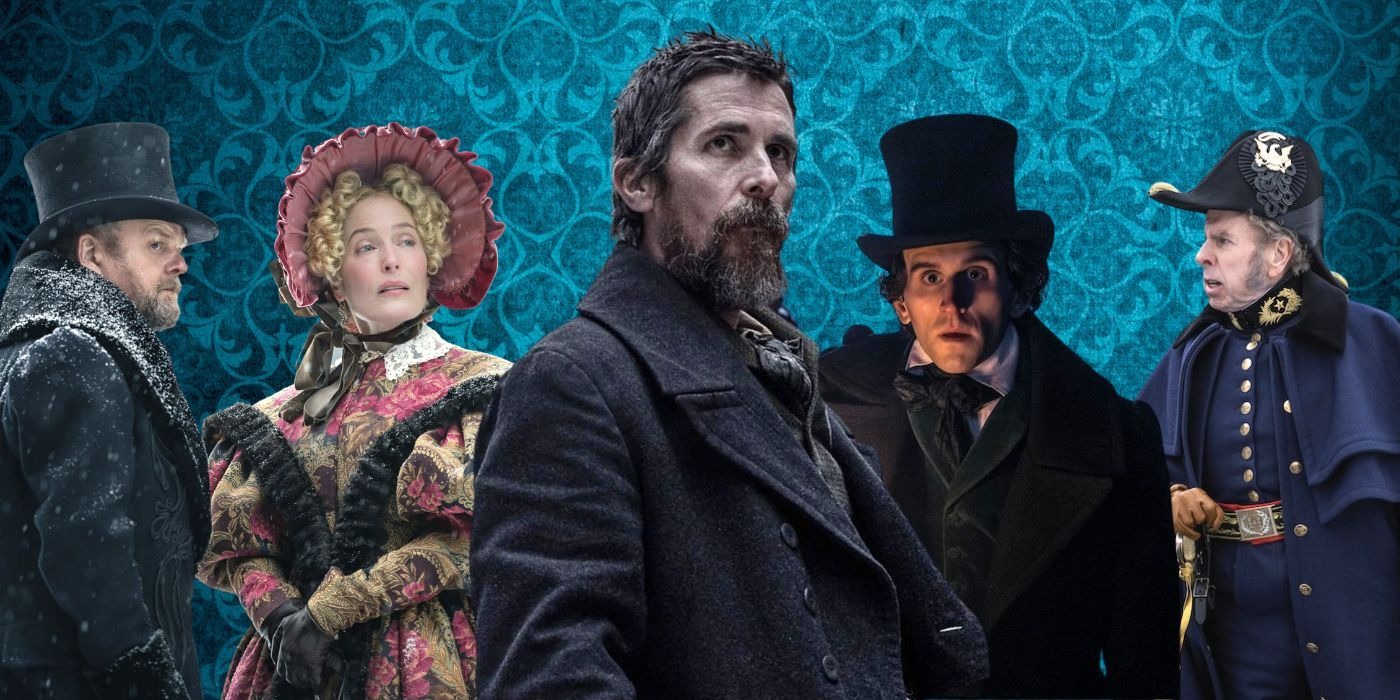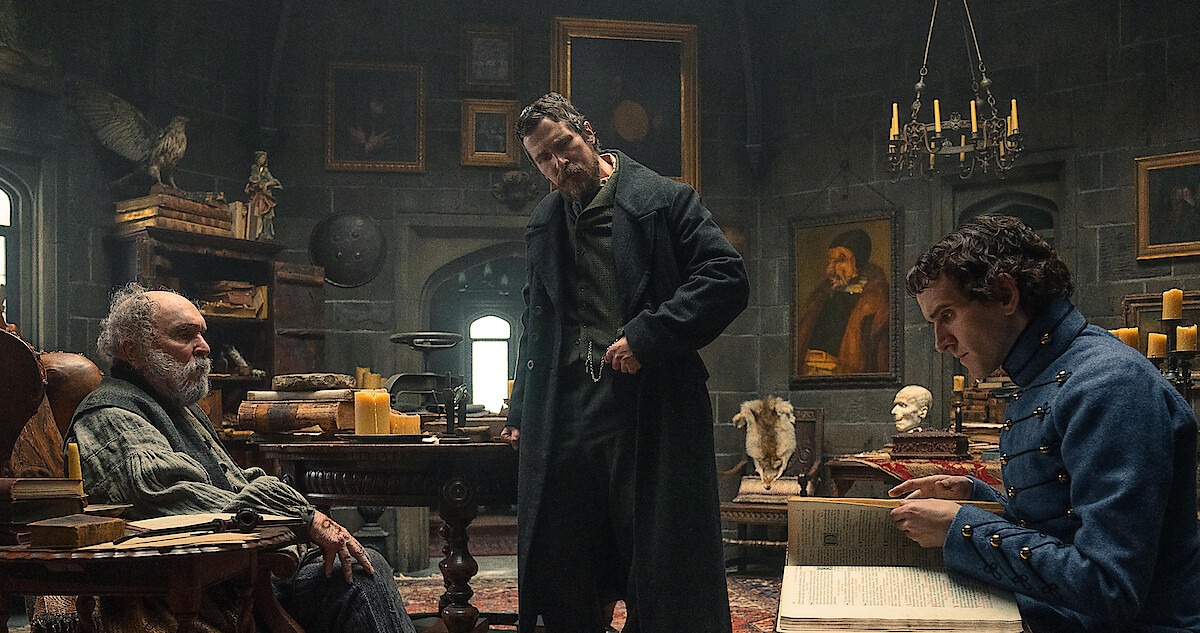Scott Cooper’s latest Netflix release, The Pale Blue Eye, culminates in a chilling and deeply introspective conclusion where all secrets are finally laid bare. After Augustus Landor (Christian Bale), the esteemed investigator, and Edgar Allan Poe (Harry Melling), the West Point cadet, seemingly resolve their case, a deeper truth begins to emerge.
In a tense and revelatory conversation, the pair unravels a web of hidden motives and concealed pain. If you’ve yet to watch the film, consider revisiting this analysis once you’ve experienced the full story. For those prepared, the narrative’s unsettling finale awaits exploration.

A Case Cloaked in Personal Tragedy
When Augustus was initially assigned to investigate the gruesome murders of several soldiers, the disappearance of his daughter, Mattie (Hadley Robinson), haunted him. Her unexplained absence weighed heavily on him, driving him into despair and alcohol.
Among those involved in the case, only Edgar seemed to notice this aspect of Augustus’s life. Although the investigation appeared to conclude with the revelation that a local family had killed the soldiers as part of a ritual, Edgar continued to question the events.
His suspicions eventually led him to uncover that Mattie had been assaulted by the very soldiers who later became murder victims. Devastated by her trauma, she took her own life in Augustus’s presence, setting him on a vengeful path. The shocking truth was that Augustus himself was responsible for the killings, targeting the perpetrators of his daughter’s suffering.
A Confession Without Defense
As Edgar shares his findings, Augustus offers no denial or defense. The two men, overwhelmed with emotion, share an intense exchange. Edgar questions why Augustus never confided in him about his loss, to which Augustus, barely able to speak, admits that comfort was unattainable.
Through Edgar’s revelations, flashbacks depict Augustus’s acts of vengeance: from hanging his first victim to emulating ritualistic mutilations to divert suspicion. These gruesome details reveal the calculated efforts Augustus employed to continue his retribution undetected.
Confrontation and Compassion
Edgar reveals that he has no intention of exposing Augustus. Despite confronting him with the truth, Edgar burns the evidence, sparing Augustus from execution but leaving him to grapple with his own guilt. When pressed further, Augustus admits to torturing his victims for information, driven by an unrelenting desire to avenge Mattie.

His inability to pursue one soldier who escaped speaks to his physical and emotional exhaustion, leaving him to wish the man a lifetime of fear. In their final moments together, both men recognize that the weight of these revelations will forever strain any semblance of friendship they might have shared.
The Weight of Loss and Justice Denied
Even as Edgar destroys the incriminating note, Augustus breaks down, consumed by grief. His daughter’s death remains an irreparable void, and his quest for vengeance provides no solace.
Though the legal system perceives order restored, Augustus is left isolated and hollow. The devastating reality is that his violent actions, motivated by a futile search for redemption, have only deepened his despair. Justice, as the film portrays it, is an unattainable ideal in a world steeped in suffering.
A Somber Farewell
As Edgar departs, Augustus makes a poignant visit to the site of Mattie’s death. Despite flashbacks of his cherished daughter and the sunlight piercing through snowy trees, he releases her ribbon into the wind.
His whispered farewell, “rest, my love,” symbolizes a reluctant attempt at letting go. However, the film leaves no illusions about resolution. The haunting conclusion underscores a brutal truth: justice and closure are often elusive, leaving individuals to endure lives shadowed by profound loss and regret.



